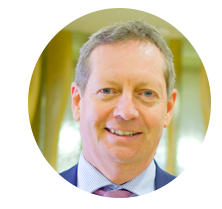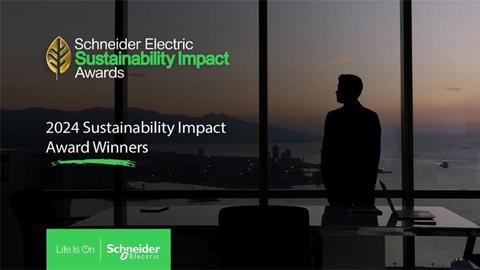Portraits
FOCUS 71 Patron Spotlight: Setting The Benchmark For Climate Responsibility

Steve Clark, CEO at SUEZ Asia, discusses the company’s ambitions to help the region achieve its environmental goals.
Please share with us about your company's operations in Singapore and Asia.
Our presence in Asia for over 65 years makes SUEZ a preferred partner in helping authorities and industrial clients develop innovative solutions to improve drinking water, sanitation and waste management services. Today, with over 9,000 employees in Asia, SUEZ manages more than 70 water and waste projects with local partners and has built over 460 water and wastewater treatment plants. Over 32 million people are benefiting from our water and waste services in Asia (more than the populations we serve in Western Europe). We own and manage the largest hazardous waste incinerator in Asia and manage the largest landfills in the world in Hong Kong. We also operate China’s first PPP water contract in Macau and delivers its expertise in the management of environmental services to 15 industrial parks in Mainland China.
In Singapore, SUEZ has been supporting the PUB in smart water projects since 2015. In addition, SUEZ has chosen Singapore as its business hub in Southeast Asia, drawing on an Innovation Center and a Water Technology Centre composed of around 50 research scientists and engineers who support project developments in the region through innovation.
What is your company's strategy and how do you adapt to climate change changes in the region?
Looking at the global trends in the environmental protection industry in the coming decade, the Asian markets such as Greater China, India and Southeast Asia will become the focus for our Group’s growth. The governments have placed the protection of the environment and circular economy one of their main priorities and I believe this offers SUEZ many opportunities to develop.
In the water sector, we identify four main areas – reducing pollution emissions for industrial wastewater treatment; restoring water ecology with projects such as river remediation; treatment and reuse of sewage or sludge and finally smart water, sponge city and other concepts to improve the performance of water management.
In the waste sector, we believe the key areas are hazardous waste management; recycling of waste material to reuse or produce energy and soil remediation.
Today, the world is faced with tremendous challenges of environmental pollution and resource scarcity, particularly in fast-growing Asia. How to secure sustainable access to clean water, fertile soil, sufficient energy and infinite resources for our future is a tough question. This is why in our Group’s new strategic plan “Shaping SUEZ 2030”, we plan to increase by 50% our investment in R&D, innovation and digitalization by 2023 so as to bring more innovative and tailor-made solutions to help the region achieve its ambitious environmental goals. Our ambition is to be the global leader in environmental services, making us the preferred choice of our customers, employees and stakeholders, working together to restore and preserve the fundamental elements of the environment: water, air and soil.
What are your company's latest activities in Singapore and the region?
Leveraging the Innovation Centre and Water Technology Centre in Singapore, SUEZ has been collaborating with PUB since 2015 to share know-how and jointly develop technologies in smart water projects and energy-efficient wastewater treatment with support from the Economic Development Board (EDB). In 2018, PUB awarded SUEZ with a contract to deploy our patented “Ice Pigging” technology to clean water supply pipelines. Most recently in 2019, SUEZ signed another four-year contract by PUB to optimize the performance of stormwater networks using SUEZ’s AQUADVANCED® Urban Drainage digital solution as an extension of a R&D project since 2015. Our goal is to assist PUB to achieve its “Smart PUB” Roadmap that targets to meet Singapore’s future water needs and optimize water resources management through comprehensive digitalization.
Additionally, in Thailand, we have just commissioned a waste-to-energy plant and more recently SUEZ has also announced the project to build a recycling plant in Bang Phli district, near Bangkok. This plant will produce 30,000 tonnes of recycled plastic each year thereby offsetting the use of virgin plastic and will contribute to Thailand’s ambitious 2030 target to achieve 100% plastic recycling. This new project strengthens SUEZ's presence in Southeast Asia and confirms its position as an expert in plastic recycling worldwide. Additionally, we are constructing water and waste water treatment plants in Vietnam and Philippines which will contribute to the overall improvement to environmental protection.
As the theme for this issue is Climate Change, where do you see SUEZ offering or adapting its services in this domain?
Fighting climate change is a top priority for SUEZ, which develops solutions to tackle three challenges: to mitigate the causes of climate change; to adapt to its consequences, and to build new alliances that develop climate-responsible models.
SUEZ solutions aim to further the efforts to reduce the carbon footprint of the Group and its clients and in particular we support cities in implementing their visions of their own future. A city that is more and more circular, resilient and collaborative. We help cities protect their environment and adopt a circular economy of resources through waste recycling and recovery and water management. We have also signed up to achieve the 1.5-degree target and are committed to limiting the carbon footprint of our activities in all the countries where we operate. One of the four priorities in the SUEZ roadmap for sustainable development consists of taking action for the climate and shaping a resource-rich future. How? By developing new growth models that consume fewer resources and emit less CO2. Our ambition is to lead the resource revolution to ensure sustainable growth.
--------------------------------------------------------------------------------------------------------------------
Section: The Water Cooler Chat
1. Who inspires you?
We are a private and profitable company but the key target of helping to contribute to a sustainable planet is an inspiration.
2. Finish this sentence: "The best use of sustainable resources is….
…to give our wastes a second life by converting them into new resources.
3. What is the best way to run a meeting?
Engage and listen. Everyone in the company has a voice.
4. If you could give one piece of career advice, it would be....
…to keep our spirits high no matter what the circumstances are – only then we could keep a cool head and solve problems in a positive way.

Interview with Steve Clark, CEO at SUEZ Asia, for FOCUS #71. To read more articles from this issue, download your digital copy here


